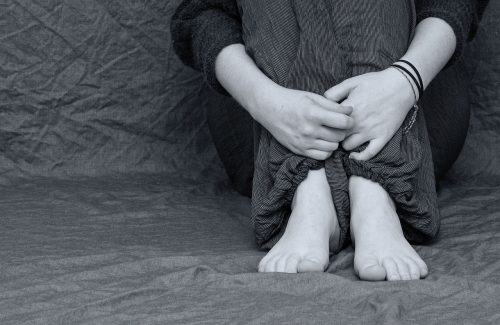
Source: pixabay.com
I am a survivor of depression. I was diagnosed with this mental disorder when I was 19 years old, during my final semester in college. It happened around the time I had been working non-stop to fund my thesis. In truth, that was also when I was more convinced than ever that I should drop out because my heart was not in the field I was preparing for (Chemistry). The problem was that I did not know how to tell my parents, who were extremely eager to see their firstborn wear a graduation cap, that I wanted to quit. So, without realizing it, I was sleeping less, almost not eating daily, and staying in my unlit room. “Those who have worked in counseling centers for the last decade have been consistently ringing a bell saying something is wrong, things are getting worse with regard to college student mental health,” says Ben Locke, PhD.
The more weeks passed by, the worse my depression would get. Since I could not bear for my folks to know what’s happening, though, I kept on lying to them about my condition. Every time they’d call me, I would say that I was making progress with my thesis. I stopped going to my classes as well and told different alibis to my friends. It only occurred to me to see a psychiatrist when I started hearing voices in my head. Although their words were hard to understand, I knew something was wrong. “Depression affects 1 percent of the population. More than three-quarters of these people experience visual or auditory hallucinations at some stage of the disease,” according to a psychologist, Dr. Łukasz Gawęda.
After the diagnosis, the mental health professional said that I could take antidepressants for six months. She also mentioned recommending me to a psychotherapist while getting medication as a complementary treatment. What did I do? I excused myself, paid the consultation fee, and got puzzles instead of pills or therapy sessions. I went through a total of eight puzzles — one for every time the voices would come back. Not only are they all hanging in various parts of the house now, but they have also helped me regain my self-consciousness and overcome the illness.
Why Do Self-Help Tips Work When Treating Depression?

Source: pixabay.com
The first reason why self-help tools work is that they are not old wives’ tales at all. Not everyone may believe it, but it is a fact that many of them are science-based. Meaning, there have been actual research conducted in the past that have proven their usefulness. For instance, studies showed that listening or playing music could increase a person’s happiness level and improve their cognitive function. Working on puzzles (like I did) could have a similar effect.
Another reason is that you know yourself better than any psychiatrist. Yes, they can pinpoint what your disorder maybe after running a few tests, but they need to make money, too. It is rare for such people to offer self-help tips to their patients right after giving a diagnosis. They may say, “You have to take these prescription drugs for faster recovery” or “You need to get therapy with this widely known therapist.” On the other hand, you are aware of what’s happening in your head, so you should know what’s best for you. This is also seconded by Alicia H. Clark, Psy.D. “The best progress happens when you apply what you’ve learned outside that setting, in your real life.”
Final Thoughts

Source: pixabay.com
Do not be afraid to try self-help methods before taking any pill or paying for therapy. If you put your heart and mind into it, they will work for you as much as they did for me. Then, you will not be at risk of becoming dependent on drugs and therapy.
Good luck!